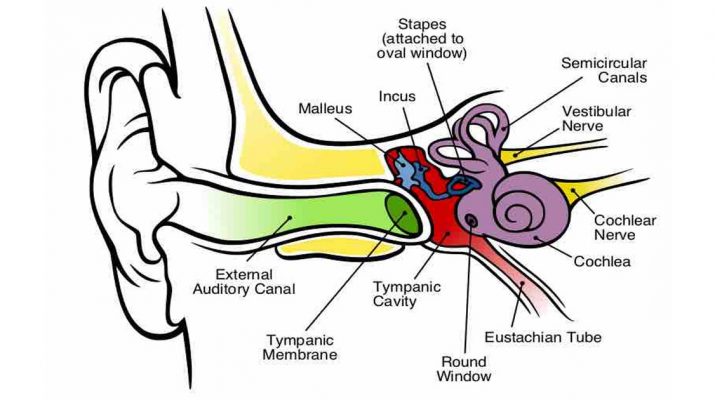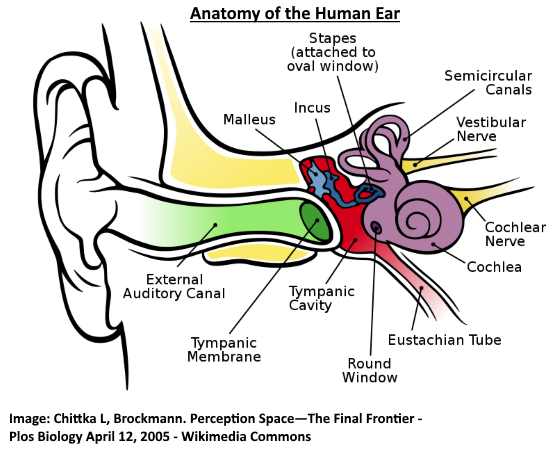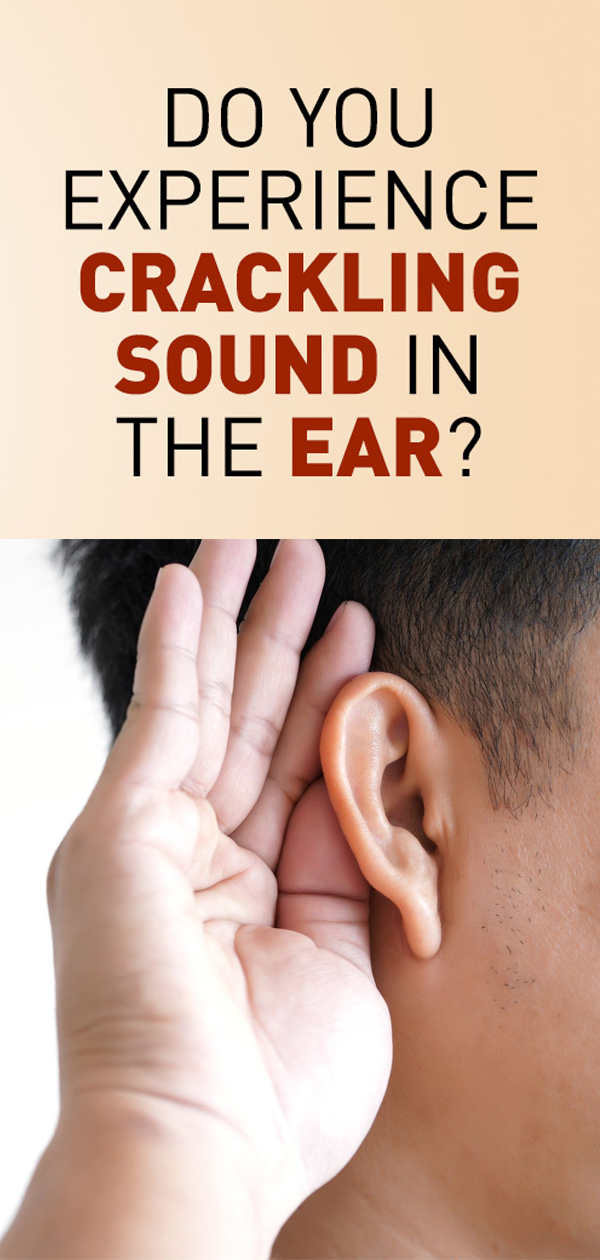Having a popping, clicking, or crackling sound in your ear can be annoying but it is mostly nothing to worry about. The popping sound in your ear happens when you swallow, yawn, or blow your nose. You might find that when taking off or descending in an aircraft your ears pop more than usual due to changes in the altitude.
The reason for the clicking sound is to do with air passing through the Eustachian tubes in your middle ear to the back of your nose. This is completely normal and the clicking or popping sounds in your ears are nothing to worry about. However, sometimes, blocked sinuses, a buildup of earwax, or ear infections can cause more frequent ear popping that some describe as having the crackling sound of Rice Krispies in their ear.
This can cause you to have a feeling of fullness in your ear along with excessive popping or clicking noises. In addition you may also have a sensation that there is water in your ear.
If you have frequent crackling or whistling sounds in your ear and your ears feel clogged or full, getting rid of earwax or treating an ear infection should help to reduce the ear crackling when swallowing. Ear infections can be serious, and if you have redness, tenderness, and very sore ears along with crackling noises, you should see a doctor.
In this article, I will discuss how our ears function and why your ears make popping sounds when you swallow. You will also find helpful home remedies to help treat ear conditions that make crackling sounds frequent and loud.
Fullness in Ear and Popping, Clicking or Crackling Noise
Your ear is a complex organ that is composed of 3 parts – the outer ear, middle ear, and inner ear. According to Dr. William Blahd on WebMD, sounds enter your ear which cause your eardrum and tiny bones in your middle ear to vibrate. These vibrations are transformed into nerve impulses which are sent to the brain.
The reason for hearing a popping, clicking, or crackling noise when you swallow is to do with the Eustachian tube that is in your middle ear. Doctors from PubMed Health say that the Eustachian tube helps to keep the pressure between your nose and ear at a steady level. To do this the Eustachian tube momentarily opens and closes and you hear a popping or small click in both ears.
According to the American Academy of Otolaryngology, the popping noise in the ear is when a small air bubble passes through. This helps to keep air pressure behind the eardrum equal. However, if your ears don’t pop, you may have a feeling of fullness in one or both ears and they feel blocked.
“Un-popped” ears may also affect your hearing as the eardrum can’t function correctly. You might even feel dizzy if you need to unpop your ears.
The Journal of Allergy and Clinical Immunology reports that along with helping to maintain proper pressure in your ears, the Eustachian tube has other functions. For example, when you hear clicking noises as the tube opens, the Eustachian tube pumps secretions through to help drain the middle ear.
What Causes Popping or Crackling Sound in Ear
Apart from the normal popping or clicking sound in your ear when you swallow, what are some of the other reasons why your ears can feel clogged?
Buildup of earwax
The most common reason why you hear a crackling or whistling sound in your ear when you swallow is due to a buildup of earwax.
Earwax is a natural substance of sebum and dead skin cells that helps to keep your ears healthy and free of infection. In fact, a study in a medical journal reported that earwax contains antimicrobial properties.
According to Dr. Mary Harding on Patient.info, earwax should drain from the ear on its own. However, sometimes earwax can block the ear canal, and this can result in hearing popping sounds in your ear. Your balance and hearing may also be affected if you have an earwax blockage.
At the end of the article, you can find home remedies to get rid of ear wax and stop clicking sounds in your ears due to a blockage. You should remember never to put any object like cotton buds inside your ears to clean them.
Ear infections
An ear infection could be a reason why you have a noise in your ear like Rice Krispies along with itching and pain.
Middle ear infections or outer ear infections happen when bacteria or fungi get into your ear canal and cause irritation and inflammation.
According to doctors from the National Health Service, ear infections can cause ear pain and itching around your ear canal. Because ear infections often affect your Eustachian tube, you might have a feeling of fullness in your ears or a buildup of ear pressure.
Other symptoms of ear infections include sharp pain in your ear, discharge from your ears, pain when you move your jaw, or swollen glands in your throat.
Some common reasons for ear infections are swimming in dirty water, scratching itchy ears, using cotton buds to clean inside your ears, or eczema.7
Sinus infection
Constant ear popping or crackling noises sometimes accompanies sinus infections that can make you feel miserable.
Upper respiratory infections can cause inflammation in your sinuses and cause them to fill with mucus and become blocked. However, sinus infections can also affect your ears and cause crackling or hissing noises when you swallow or blow your nose.
According to Dr. Jennifer Robinson on WebMD, your sinuses and ears are connected. When your sinuses get blocked, it increases pressure on your ears and makes your hearing muffled. You might have constant ear popping as if you are descending in a plane.
You might be able to pop your ears and relieve some of the pressure by gently blocking one nostril and blowing through the other one. You should also avoid shaking your head to try and get rid of the ear crackle.
Fluid in the ear
Crackling noises in one or both ears could be due to an accumulation of fluid in the ears.
According to doctors from the Mayo Clinic, a fluid buildup in the middle ear is usually the result of an infection. However, the fluid buildup can persist long after the ear infection has been treated. Middle ear inflammation and fluid buildup can also occur without infection.
So, what kind of irritating noises in your do ear infections cause? Dr. Rod Moser, author of the book “Ears: An Owner’s Manual and Primary Care for Physician Assistants,” says that a fluid buildup in the ear can cause crackling or crunching noises when a person moves their mouth.
Eustachian tube dysfunction
Problems with one or both of your Eustachian tubes could cause crackling noises in your right or left ear.
Colds, sinus infections, allergies, or ear infections can all cause blockages in the Eustachian tubes. Dr. John Mersch on MedicineNet reports that Eustachian tube dysfunction will cause a sensation of ear popping or clicking. A vacuum can develop in the middle ear which will cause sounds to be perceived as muffled and your ears will feel full.
Some people may describe the ear crackling sensation as a tickle in their ear.
Sometimes just swallowing is enough to help open the Eustachian tube and relieve the discomfort in your ears that it causes.
Temporomandibular joint (TMJ) syndrome
Temporomandibular joint syndrome (or TMJ syndrome) is a dysfunction in your jaw bone that can affect your ears and cause popping noises.
According to Dr. Donna Bausista on eMedicineHealth, TMJ syndrome causes similar symptoms to an ear infection. This can cause neck pain behind the ear, muffled hearing, and ringing in the ears. However, moving the jaw may result in popping or clicking sounds from the jaw moving.
There are some natural ways to help ease the symptoms of TMJ naturally and get rid of the popping sounds when you move your jaw. Dr. Bausista recommends finding ways to manage stress to help relax the jaw, avoiding chewing chewy foods, and using a warm compress on your jaw to ease the pain.
Something stuck in your ear
Something as simple as a small object lodged in your ear could cause strange popping sounds when you swallow.
For example, Dr. Rod Moser says that even a stray hair resting on your eardrum could be a reason why you have crackling in your ear. This can affect the vibrations on the eardrum and create unusual noises in your ear.
How to treat Crackling, Popping or Clicking Noise in Ear
It is completely natural for your ears to make popping or clicking noises when you swallow. Air needs to pass through your Eustachian tubes to control the pressure in your ears and help maintain proper balance.
What should you do if an ear infection, a buildup of wax, changing altitudes, or other reasons cause fullness in your ears as if they are clogged? Here are some natural ways to unpop your ears and relieve the feeling of fullness in your ears.
Unpop your ears
The easiest way to remedy a feeling of having full or clogged ears is to unpop them.
Doctors from the Mayo Clinic say that to get rid of pressure buildup in your middle ear, you can try the Valsalva maneuver. This can help to get rid of a feeling of fullness in your ears and reduce the muffled sounds that you hear.
To unpop your ears naturally, this is what you should do:
- Pinch both of your nostrils so they are closed.
- Gently blow your nose to force air into your nostrils.
- The gentle pressure should force the Eustachian tubes to open and you should hear a pop in your ears.
Remove wax with olive oil
If too much earwax is blocking your ears and causing the ears to make a crackling sound all the time, you can dissolve excess ear wax with olive oil.
According to the British Journal of General Practice, olive oil is a recommended natural remedy for earwax removal. In fact, many studies have shown that warmed olive oil is just as effective as commercial preparations to help drain wax from the ear.
How to use olive oil to unblock ears:
For this natural remedy for stopping crackling sounds in your ear, you will need some olive oil and a dropper. This is the method for removing the wax:
- Warm some extra-virgin olive oil, making sure it isn’t too hot.
- Put your head to one side and using a dropper, put a few drops in your ear.
- Wait for 2-3 minutes to allow the olive oil soften the earwax.
- Use a cotton bud to remove the dissolved wax from the outer part of your ear.
- Use as often as necessary to remove a buildup of wax from your ears and stop excessive popping noises.
Hydrogen peroxide
Hydrogen peroxide is another natural remedy that can help to clear your ears and get rid of a feeling of fullness in your ears.
According to doctors from the Mayo Clinic, you can soften earwax by putting a few drops of 3% food grade hydrogen peroxide in your ear.
How to use hydrogen peroxide to stop clicking noises in your ears:
To use hydrogen peroxide to remove an earwax buildup and stop ear clicking that it causes, this is what you should do:
- Fill a dropper with 1-3 ml food grade 3% hydrogen peroxide.
- Tilt your head to the side and put a few drops of the hydrogen peroxide solution in your ear canal.
- Press the flap at the opening to your ear canal to work the hydrogen peroxide and help dissolve the earwax.
- Continue for 10-15 seconds. During this time, you should ear the “snap, crackle, and pop” sounds like Rice Krispies make.
- Tilt your head to the other side and use a cotton wool pad to clean the drainage from your ear.
- Repeat with your other ear.
Garlic for an ear infection
Garlic has natural antibacterial and antifungal properties that can be used to treat a mild ear infection and stop constant crackling sounds in your middle ear.
The journal Medicine reported in 2016 that preparations containing garlic extract are effective in managing ear pain in children. Researchers found that the antimicrobial properties of garlic can help to treat infections and inflammation of the ear.
According to the journal Letters in Applied Microbiology, garlic contains compounds that are effective in treating fungal ear infections in the outer ear.
How to use garlic for ear infections:
To use garlic to kill off bugs and germs in the ear and stop constant crackling noises when you swallow or move your jaw, this is what you should do:
- Crush 2 cloves of garlic and leave for a few minutes. This allows the antimicrobial ingredient allicin to form.
- Put in a pan with a few tablespoons of olive oil and cook for several minutes.
- Strain the garlic oil through a metal tea strainer and leave it until it has a warm temperature, but not too hot.
- Lie on your side and using a dropper, put 2-4 drops of warm garlic oil in your sore ear.
- Leave for 2-3 minutes to let the garlic kill off the infection and dissolve any wax buildup.
- Repeat 3 times a day until you no longer have any pain and you only have “regular” ear popping sounds when you swallow.
Saline nasal rinse
Because your sinuses, nose, and ears all are all connected, you can help to unclog your ears using a saltwater solution.
Salt is a natural antibacterial agent that can help to rid you of a sinus infection and its associated symptoms. According to Dr. Luqman Seidu on WebMD, nasal irrigation with a saltwater solution and Neti pot can help to relieve sinus symptoms.
How to irrigate your nasal passages and relieve ear crackling:
Here is how to use a Neti pot to help clear your sinuses and unclog your ears naturally:
- Boil 1 pint of water and allow to cool until it is lukewarm (or use distilled warm water).
- Mix 1 teaspoon salt in the water and fill the Neti pot.
- Tilt your head at a 45-degree angle and put the spout of the Neti pot in your upper nostril.
- Gently pour the saltwater solution in your nostril and let it flow out the other nostril.
- Repeat with the other nostril to help kill germs in your sinuses.
Other Ways to Get Rid of Popping Sound in Ear
There are many other ways to help relieve pressure in your ear and unpop your ears if you have Eustachian tube dysfunction or a buildup of earwax.
Yawning or swallowing. Opening your mouth wide can help to relieve ear fullness and get rid of crackling sounds from your ear. According to Dr. Rod Moser on WebMD, yawning or swallowing activates the muscles in your jaws and ears and can equalize the pressure in your ears.
Decongestants. You can try using steam inhalation as a decongestant to try and clear your Eustachian tubes. Some natural ingredients that help break up phlegm and mucus are eucalyptus oil, peppermint oil, and tea tree oil. Put a few drops in a bowl of boiling water and inhale to unclog your sinuses and help relieve pressure in your ears.
Chew gum. Chewing gum or sucking on candy may help to get rid of popping and crackling in your ears. Chewing gum works on the same principle as yawning or swallowing. Sucking on candy can help if your ears are popping when you are on an airplane or you have constant crackling in your ears while you have a cold.



